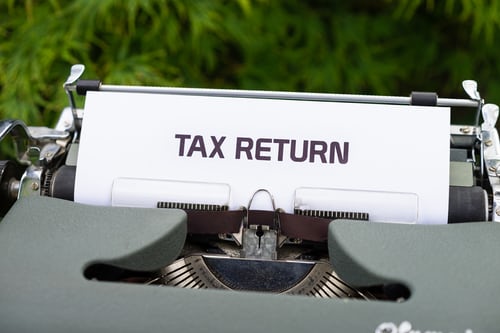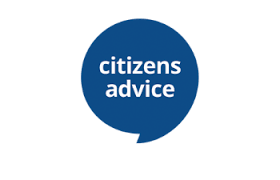Working in the UK
| Site: | Learn Hillingdon - Adult Community Education |
| Course: | Welcome to Hillingdon |
| Book: | Working in the UK |
| Printed by: | Guest user |
| Date: | Thursday, 22 January 2026, 11:01 PM |
Description
Summary of sections: 
- Eligibility to work (Answers questions such as: Can I work in the U.K? What about work permits? What are my workers' rights?)
- Jobs (includes looking for and training for jobs)
- Employment status, relevant tax information and health and safety at work
- Benefits (including Universal Credit)
- HACL - Education and Careers Hub - Links to our education and career advice page
- Other information including helplines e.g. Citizens Advice Bureau, legal help, modern slavery, financial abuse, etc
1. Eligibility to work
You are eligible to work in the UK, and therefore don’t need to obtain a work permit, if any of the following apply: You are a British citizen. You are an European Economic Area (EEA) citizen. You are a Swiss national. You will also need to apply for a UK residence card or be able to prove your right to work in the UK as an EU citizen (for example, a valid UK National Insurance number). For more information related to EU, EEA and Commonwealth citizens and your rights to working in the UK, please visit: Working Rights in UK If you’re not a British citizen, EEA citizen or Swiss national, you may need to apply for a visa in order to be able to work in the UK. For a full list of the visas available to you, and to check if you need a UK visa, please visit: Visas and Immigration If you’ve already found a job in the UK and been accepted to work, or you have a visa but it does not allow you to work, you may need to obtain a work permit. For more detailed information about your rights to working in the UK, please visit: Different work visas in the UKAm I eligible to work in the UK?

If you’re from the EU/EEA or Switzerland
What if I don’t have the right to work in the UK?
Visas
Work Permit
2. Looking for jobs
How do I start looking for work? |
The local Job centre is a good place to start. A high number of employers use job centres to find new staff for both part time and full time jobs.
You need to figure out what you want to do.
Assess your skills, abilities, and interests – and do some research into careers that will put each one of your strongest attributes into practice.
Doing some work experience or taking on an internship are also great ways to realise your passions without having to commit to a permanent role.
If you think a lack of experience is holding you back – don’t panic.
There are many ways to enter the world of work.
Volunteering, internships, and apprenticeships are all great ways to gain practical experience.
Youth Direct lets you search for apprenticeships, graduate jobs and volunteering opportunities using your location.
You can find out how qualifications awarded in your home country relate to British qualifications through UK NARIC.
Which are the best job websites?
There are endless websites advertising jobs, so the trick is to find the ones most relevant to you.
The larger job websites let you add your CV so employers can search for potential candidates.
Popular sites include:
How can we at HACL help? 
Through our Education and Careers Hub we will help support you in making fully informed choices that will help move you towards realising your ambitions and unlocking your potential.
Our HACL Careers & Education Advice Hub has put together some useful information to support you with looking for a job, apprenticeships, trainee-ship and work placement.
3. Employment status, taxes and health and safety information
Employment status 
A person may have a different employment status in tax law.
The main types of employment status are:
For more information around types of and employment rights of each status, click on the type of status above.
You may want to start your own business.This is known as being self-employed. It is a good idea to get advice before you start your business. You may be able to get financial or other help to start up. For more information visit the government website about being self-employed: Work for Yourself Most people in the UK pay Income Tax and National Insurance (NI). Income tax is based on how much you earn. Anyone who is physically present in Britain for six months or more in any tax year is regarded as resident for tax purposes. Self-Employment (Starting your own business)

Taxation and National Insurance (NI) Contributions

National Insurance is paid to the Government and contributes to state pensions, welfare benefits and the National Health Service(NHS).
Income Tax and National Insurance contributions are taken directly from your pay as soon as you earn more than the lower earnings limit.
You should receive a pay slip from your employer which shows details of all the deductions that have been made.
Everyone needs a National Insurance Number before they can start work or claim any benefits.
You can apply National Insurance Number online: Apply for National Insurance Number
National Minimum Wage and National Living Wage rates
The hourly rate for the minimum wage depends on your age and whether you’re an apprentice.
Year | 25 and over | 21 to 24 | 18 to 20 | Under 18 | Apprentice |
April 2020 (current rate) | £8.72 | £8.20 | £6.45 | £4.55 | £4.15 |
Health and Safety at Work 
Your employer has a duty to make sure that you are safe at work.
They must make sure you have the right safety clothing, and are properly protected.
They must also ensure that your place of work is not a fire risk.
There must be signs to tell you where to go if there is a fire, and there should be fire extinguishers nearby.
You should be given proper instructions on how to use any equipment.
4. Benefits (including Universal Credit)
Benefits in the UK 
There are various benefits such as Job Seeker's Allowance, Universal Credit, Tax Credits, Child Benefit, etc that you may be eligible for.
For all information about benefits, visit: UK Government Benefits page
Use an independent benefits calculator to find out: Universal Credit is a benefit given to people of working age on a low income by the Department of Work and Pensions (DWP). Most people living in the borough who need to make a new application for financial support or tax relief will now make a claim for Universal Credit; and this must be done online using the Universal Credit website. Universal Credit is part of the Government’s wider welfare reform plans. It replaces six working age benefits into a single household benefit. These are: Jobseeker's Allowance Housing Benefit Working Tax Credit Child Tax Credit Income Support Employment and Support AllowanceUniversal Credit
Click: Apply for Universal Credit
5. HACL - Education and Careers Hub
Here at HACL, we have put together information and resources to provide you with education and careers advice and guidance.

Our team is here to support you in making fully informed choices that will help move you towards realising your ambitions and unlocking your potential.
In our Education and Careers Hub page you will find information on:
- Key HACL documents
- Careers Advice Hub
- Information for businesses and employment
- Volunteering Opportunities
- Information on education, Learning and Funding
- Hillingdon Libraries
6. Other work-related helplines (including Citizens Advice, legal help. Modern Slavery, financial abuse help, etc)
Citizens Advice Bureau 
You can get free, confidential, independent and impartial advice about
Debt (money problems)
Benefits
Tax
Family law
Housing
Education
Immigration
Local Centres:
Ruislip 9 Eastcote Road centre Ruislip. HA4 8BD | Hayes Hayes One Stop 49-51 Station Road Hayes. UB3 4BE | Uxbridge Link 1a, Civic High Street Uxbridge. UB8 1UW |
Save yourself a visit to the bureau and access initial assessment service on:
0344 848 7903 CLICK: Citizens Advice Hillingdon
(Monday to Friday 9:30am to 3:30pm)
General Legal Advice
If you need general legal advice you can find information on who to contact locally through:
Hillingdon Law Centre
0208 561 9400 CLICK: Hillingdon Law Centre
Civil Legal Service
Modern Slavery information 
Modern slavery is when someone exploits or uses other people in a most horrific and harsh way for their own personal or commercial gain.
For more information, click: Modern Slavery Awareness for our information on this topic
Help from HMRC for extra support if you suffer financial hardship or abuse
HM Revenue and Customs (HMRC) can help you if you need extra support because of your condition or circumstances. You might need extra support if:
- you have dyslexia, autism or cognitive difficulties
- you have reduced mobility or physical disabilities
- you have sensory disabilities, like a visual, hearing or speech impairment
- you have mental health conditions, like depression, stress or anxiety
- you’re experiencing financial hardship - for example you cannot afford essentials like food, bills or rent
- you’re a victim of domestic abuse, including economic abuse
- you’re in hospital
Click: Get help from HMRC if you need extra support